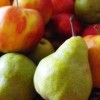Weight management


When losing weight seems… impossible
Weight loss occurs when the energy intake from food (that is calories) is less than the energy consumed by our body. The larger that difference, the more the rate at which body weight goes down. Energy intake, isn’t the sole factor affecting weight loss, but it is by far the most important. Evidently, one cannot slim down without limiting his/hers energy input.
Read more »

The “miracle” diet
How is our weight affected by what we eat and drink? To study the effect food has on us isn’t straightforward; significant time and effort are required. It is better though than personal observation, which might help lose weight when we want to, but could be proven dangerous for our health.
Read more »

Christmas strategy to avoid weight gain
The holidays are underway and the spirit is full of the joy and warmth of the time spent with friends and family, also it carries with it quite a few nutritional challenges. The favorite, for many, Christmas pastries, the celebratory and family dinners and gatherings during the holiday period demand increased effort to keep our weight down. Although there is no need to feel guilty for enjoying food more this time of the year, it wouldn’t hurt to avoid gaining weight. And for that we have to be prepared and strategic.
Read more »

Sweet challenges
Sweets and pastries are in abundance this time of the year. One is bound to come across all kinds of them during family or friendly gatherings, or to receive them as gifts or when it’s dessert time at a restaurant!
Read more »

Flavonoids and how they affect weight
Flavonoids are secondary s for plants and funguses. Meaning organic compounds not directly involved in the development and reproduction of organisms; hence we call them secondary. They are found in certain fruits and vegetables and have been observed to decrease the likelihood of cancer, cardiovascular diseases, to have anti-allergic and diuretic effects as well as to protect teeth and shield against the flu.
Read more »






